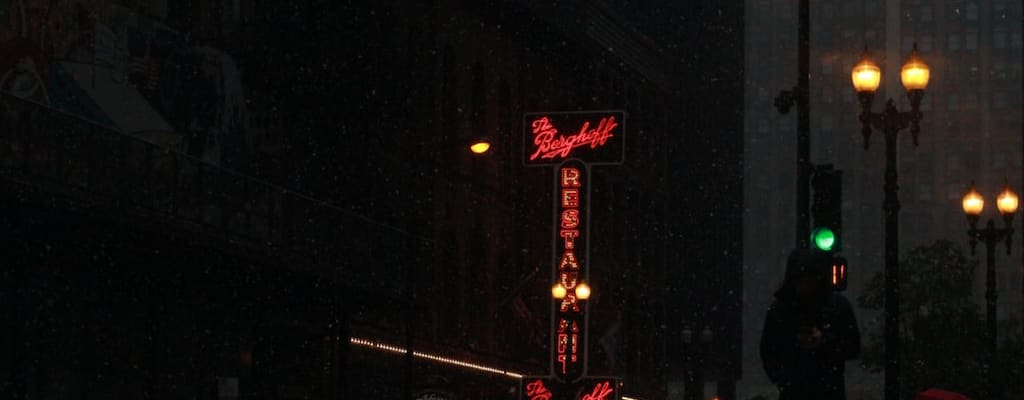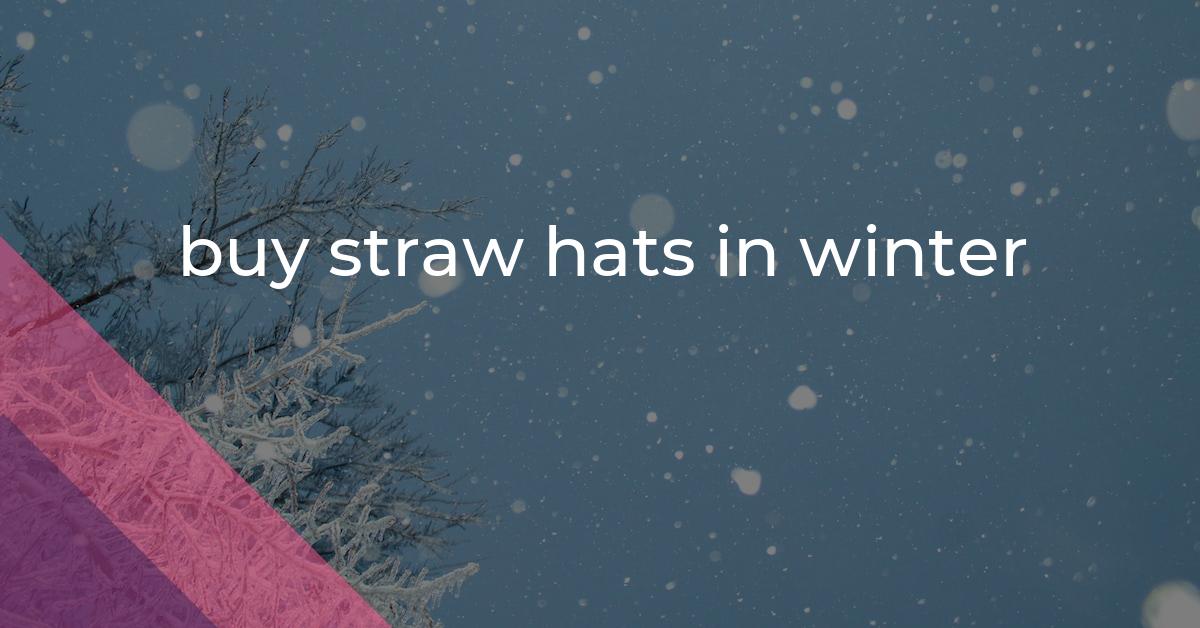buy straw hats in winter: Idiom Meaning and Origin
What does ‘buy straw hats in winter’ mean?
The idiom "buy straw hats in winter" means making an unwise or unwanted purchase at the wrong time or season. It implies a lack of foresight or practicality in decision-making.

Idiom Explorer
The idiom "winter rat" refers to a person who only shows up or appears during difficult or challenging times, but is absent during times of ease or prosperity.
In the idiom "eat one's seed corn", the phrase refers to consuming or disposing of valuable resources without considering the long-term consequences. It implies a short-sightedness and lack of foresight, often resulting in detrimental effects on future prospects or success.
The idiom "eat one's hat" means to be absolutely certain about something, even if it seems unlikely, and be willing to take drastic measures to prove it.
The idiom "draw the short straw" means to be chosen or assigned for an undesirable task or outcome, typically due to bad luck or random selection.
An idiom meaning to take shortcuts or do something in a faster or easier way, often sacrificing quality or thoroughness. It is used to describe a situation where someone tries to save time, money, or effort by finding an easier or quicker way to achieve a goal.
The idiom "cold day in Hell" refers to a highly unlikely event or situation.
The idiom "catch the sun" figuratively means to take advantage of an opportunity or grasp a moment of happiness or success. It implies capturing a fleeting moment, like trying to catch the sun in your hands.
The idiom "catch one's death" means to become very cold and potentially develop an illness as a result of being exposed to extreme cold weather.
The idiom "catch flies" means to do something unproductive or idle, often in a way that suggests a lack of focus or concentration on important tasks.
Unexpected Symbolism
The idiom "buy straw hats in winter" is a phrase often used to convey the idea of making a purchase at an opportune moment. In the early 20th century in the United States, people would buy straw hats during the winter season, which was seen as an unlikely time to do so. The idiom implies that purchasing something out of season may result in a better deal or an advantageous situation.
One possible explanation for this idiom is that in the past, straw hats were primarily worn during the warmer months to protect individuals from the sun. Therefore, buying a straw hat during the winter would be seen as impractical and unnecessary. The idiom suggests that purchasing something when it is not in high demand or popular may lead to better value or a unique opportunity.
Another interpretation of this idiom relates to the concept of financial investments. Just as buying straw hats in winter may be considered a wise move due to lower prices or reduced demand, making specific financial investments during a time of economic downturn can also yield positive results. The idiom implies that taking advantage of favorable conditions, even if they seem unconventional or counterintuitive, can lead to advantageous outcomes.
Furthermore, the idiom "buy straw hats in winter" encourages individuals to think outside the box and challenge established beliefs or practices. It represents a willingness to go against the norms or conventional wisdom. By embracing unconventional strategies or taking risks, individuals may find unique opportunities or achieve remarkable success. The idiom emphasizes the importance of seizing advantageous moments and being open to alternative approaches.
The idiom "buy straw hats in winter" can be interpreted in both a literal and metaphorical sense. In a literal sense, it reinforces the idea of making purchases out of the ordinary or expected timeframe. By doing so, individuals may discover hidden gems or enjoy greater benefits. In a metaphorical sense, the idiom extends its meaning to various aspects of life. It encourages individuals to explore unconventional paths, challenge conventional wisdom, and embrace unique opportunities.
When it comes to idioms, their meanings often go beyond their literal interpretations. They carry layers of cultural significance and reflect the complexities of language. The idiom "buy straw hats in winter" is no exception. Its origins and various interpretations reveal the intricate nature of language and idiomatic expressions.
As with any idiomatic expression, the idiom "buy straw hats in winter" can be related to other idioms that share similar themes or concepts. Two idioms that come to mind are "bang straw" and "winter rat." When combined, these idioms provide additional layers of meaning and enhance our understanding of the idiom "buy straw hats in winter."
The idiom "bang straw" refers to promoting or emphasizing something that is unimportant or insignificant. It can be used to describe a situation where someone is making a big deal out of something trivial or inconsequential. This idiom ties into the idea of buying straw hats in winter because it suggests that some things may not be worth the effort or attention. Just as buying straw hats in winter may seem unnecessary or impractical to some, "bang straw" highlights the importance of focusing on what truly matters.
The idiom "winter rat" refers to someone who thrives in difficult or challenging circumstances. It embodies the idea of resilience and adaptability. This idiom resonates with the concept of buying straw hats in winter because it encourages individuals to embrace unconventional situations. Just as a "winter rat" can make the most of a harsh season, buying straw hats in winter requires a willingness to embrace unexpected opportunities and make the best out of unconventional circumstances.
When considering the idioms "buy straw hats in winter," "bang straw," and "winter rat" together, a common theme emerges - the importance of seizing opportunities and challenging conventional wisdom. These idioms invite individuals to think critically, take risks, and make the most out of unexpected circumstances. They encourage us to push beyond our comfort zones and explore new possibilities.
The idiom "buy straw hats in winter" suggests the value of taking advantage of opportunities or making purchases at unexpected times. Its origins can be traced back to the early 20th century in the United States. Whether used in a literal or metaphorical sense, the idiom emphasizes the importance of seizing advantageous moments and going against the grain. When related to other idioms such as "bang straw" and "winter rat," the interconnected themes of focusing on what truly matters and embracing unconventional circumstances become apparent. The idiom "buy straw hats in winter" reflects the complexities of language and idiomatic expressions while providing insight into the human desire for unique opportunities and advantageous outcomes.
Example usage
Here are three examples of how the idiom "buy straw hats in winter" can be used in sentences:
1. Despite the freezing temperatures, the department store decided to buy straw hats in winter in order to sell them at a higher price during the summer season.
2. It is foolish to buy straw hats in winter because there is no demand for them during the cold months.
3. The farmer decided to buy straw hats in winter as they were on sale, even though he knew he wouldn't need them until the upcoming spring.
More "Miscellaneous" idioms



